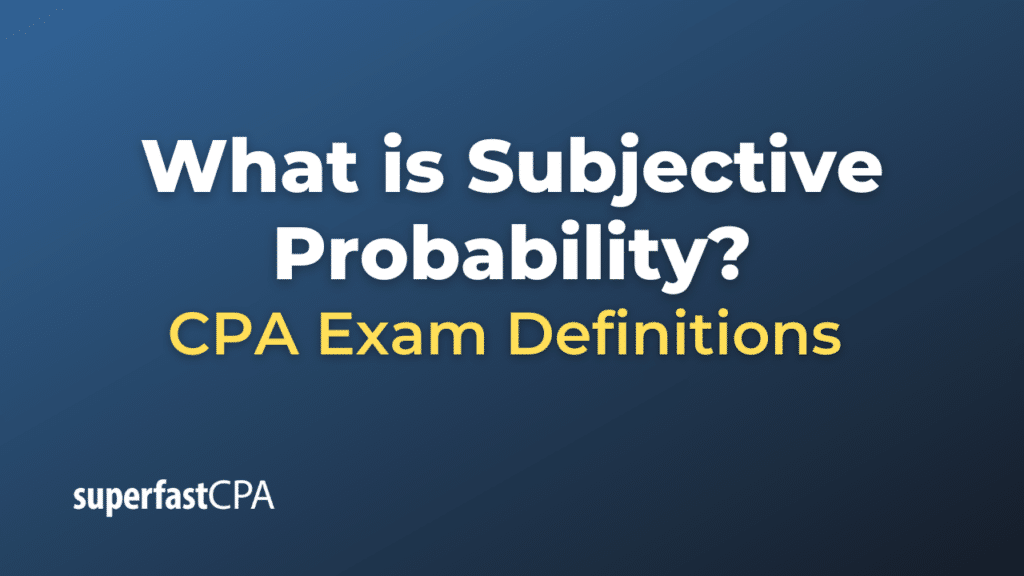Subjective Probability
Subjective probability refers to the likelihood or estimation of an event occurring based on an individual’s personal judgment or belief rather than on objective or empirical evidence. It is a degree of belief, influenced by personal perceptions, experience, intuition, or bias. In essence, subjective probability does not rely on historical data or mathematical calculations, but rather on one’s own beliefs.
Subjective probability contrasts with classical or frequentist probabilities. While classical probabilities can be calculated based on known outcomes (like the probability of drawing a certain card from a deck) and frequentist probabilities are derived from long-term frequencies (like the proportion of times a coin lands heads when flipped many times), subjective probabilities are personal and can vary significantly between individuals.
Example of Subjective Probability
Let’s consider a more everyday scenario to illustrate subjective probability.
Scenario: The Case of the Outdoor Picnic
Background: Lucy is planning an outdoor picnic with her friends next weekend. She’s trying to decide whether to reserve an outdoor venue or opt for an indoor setting. The weather forecast is her main concern.
Lucy’s Subjective Probabilities:
- Past Experience: Lucy remembers that around this time of year, it usually rains in the afternoons. Even though she hasn’t checked the weather forecast for next weekend, based on her memories of past years, she assigns a subjective probability of 70% that it will rain in the afternoon.
- Friend’s Opinion: Lucy’s friend, Emma, mentions that she feels the weather has been drier than usual this year and she doesn’t think it will rain next weekend. Influenced by Emma’s opinion, Lucy revises her estimation slightly, now believing there’s a 60% chance of rain.
- Gut Feeling: Despite past experiences and Emma’s opinion, Lucy has a gut feeling that it might be sunny. She can’t explain why, but this intuition makes her feel there’s a 50% chance of rain – effectively making her uncertain.
Decision: Taking into account her subjective probability, Lucy decides to reserve both an outdoor venue and an indoor backup space just in case. It might cost a bit more, but it’s worth the peace of mind for her.
In this example, Lucy’s assessment of the likelihood of rain is influenced by her past experiences, her friend’s opinion, and her own intuition. None of her estimations are based on objective data (like a weather forecast), making them subjective probabilities. This example underscores that subjective probability is deeply personal and can be influenced by a myriad of factors, many of which might be intangible or hard to articulate.













